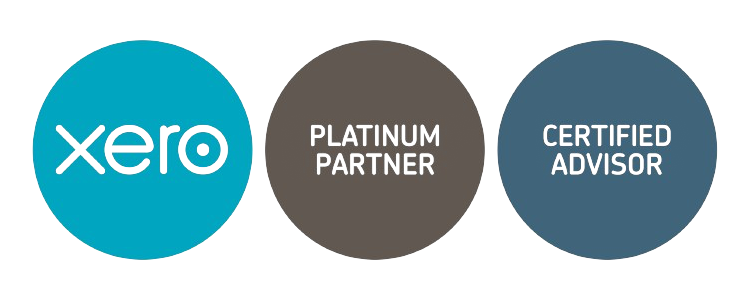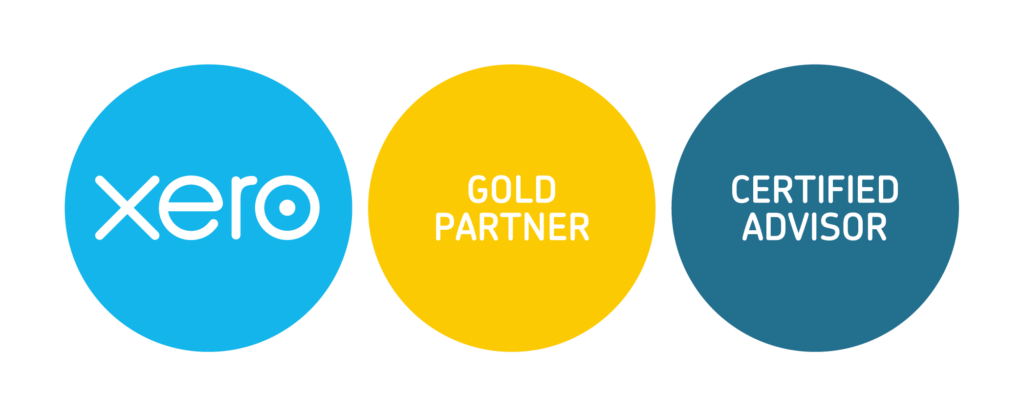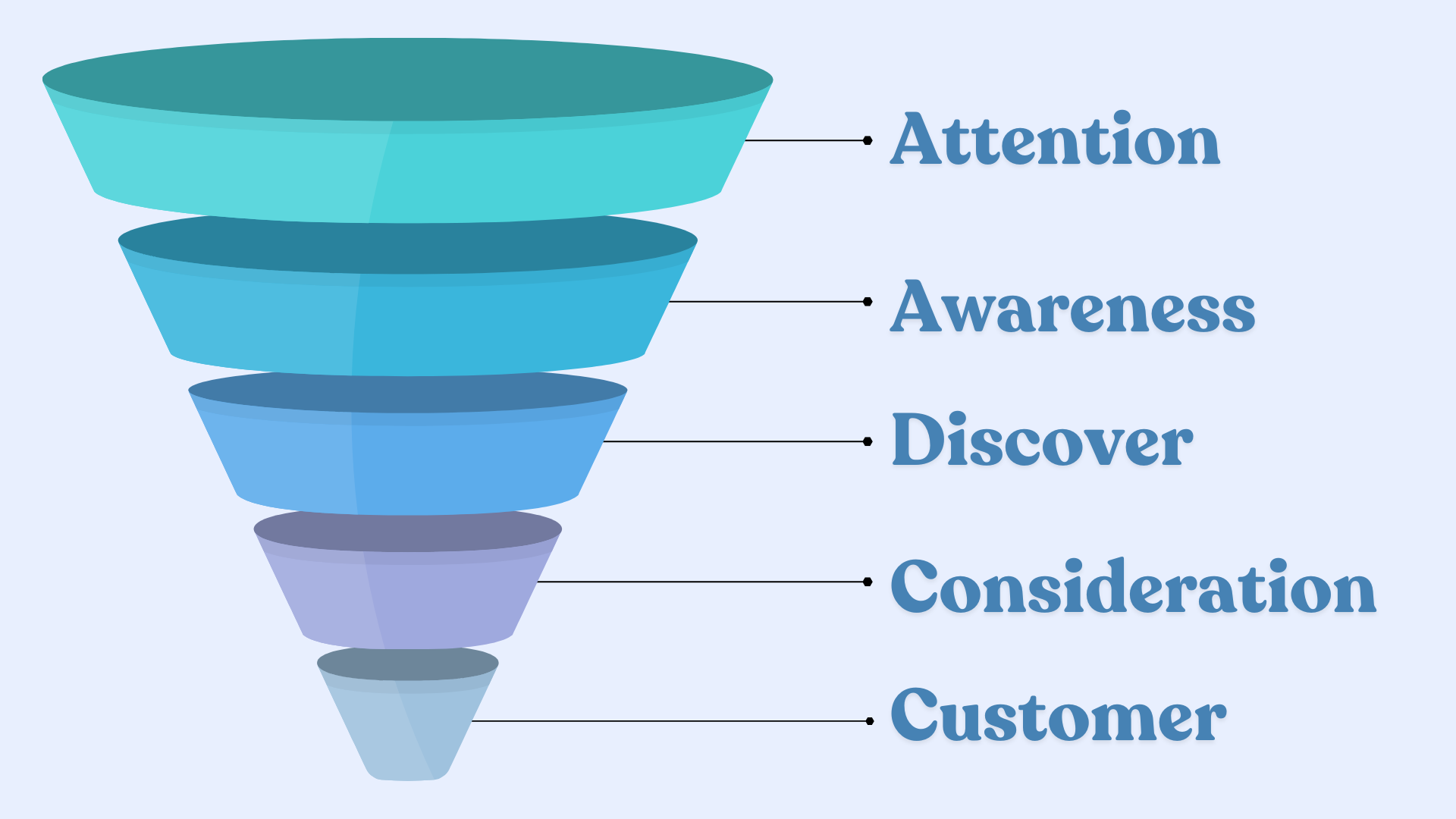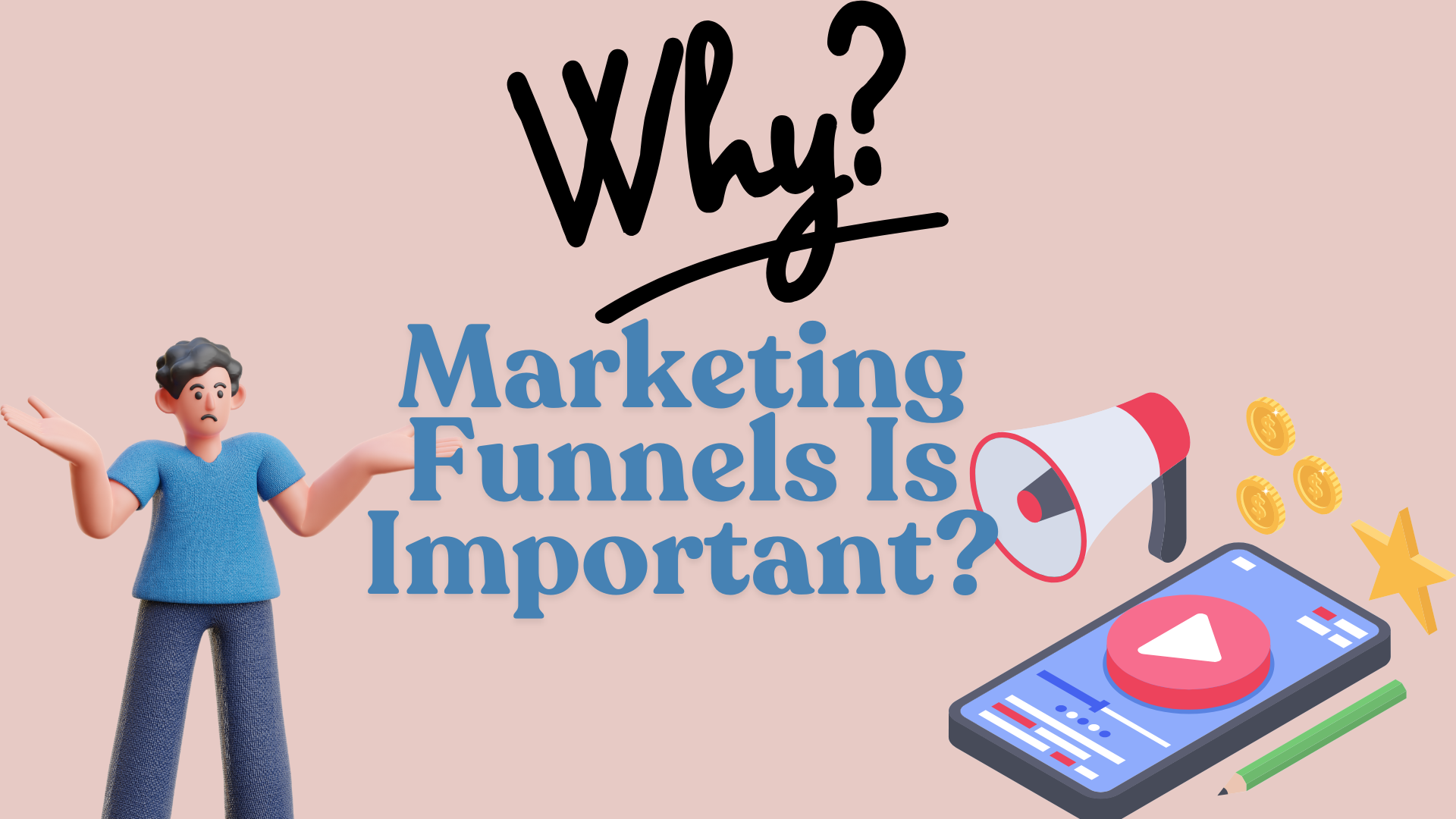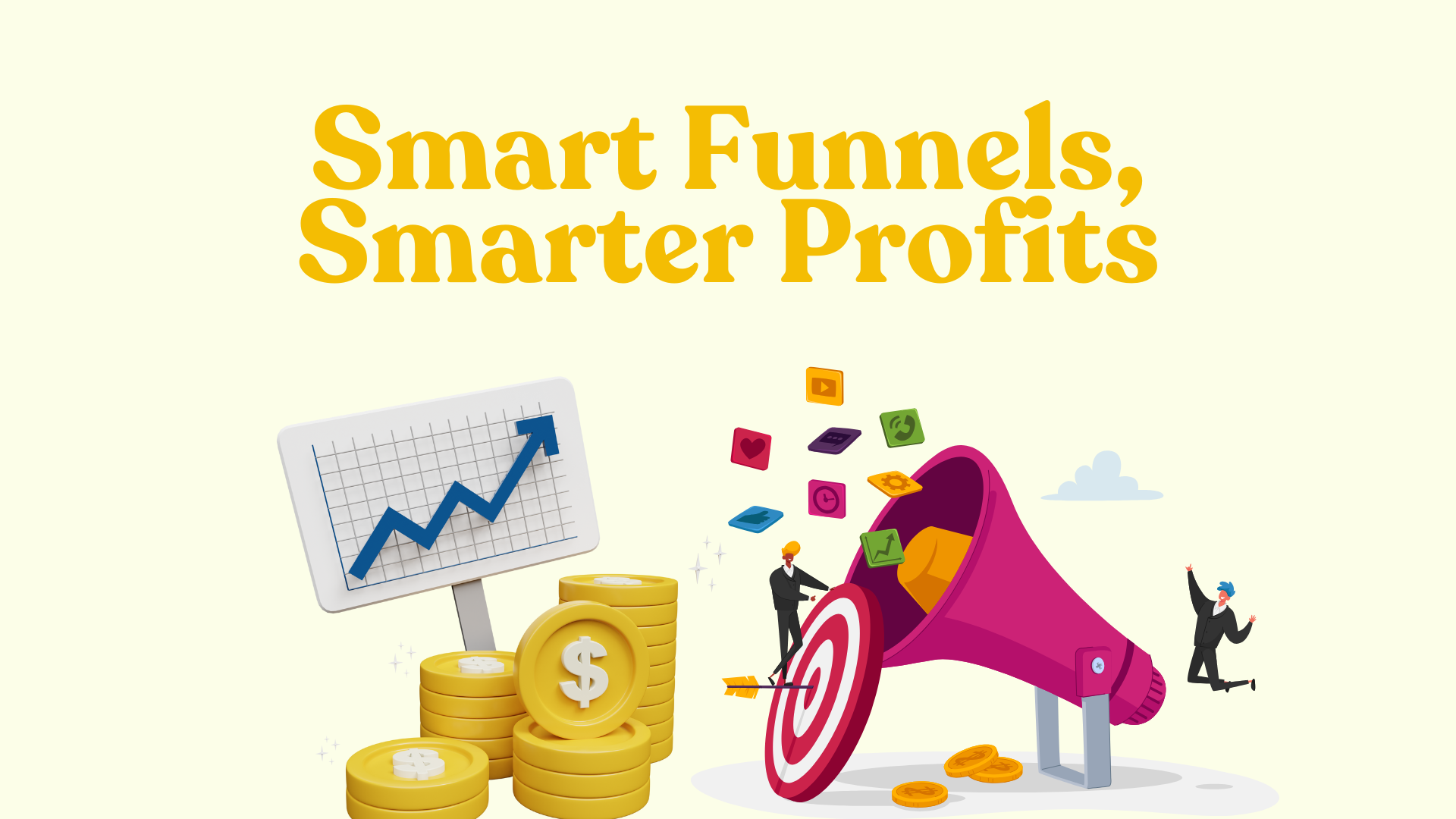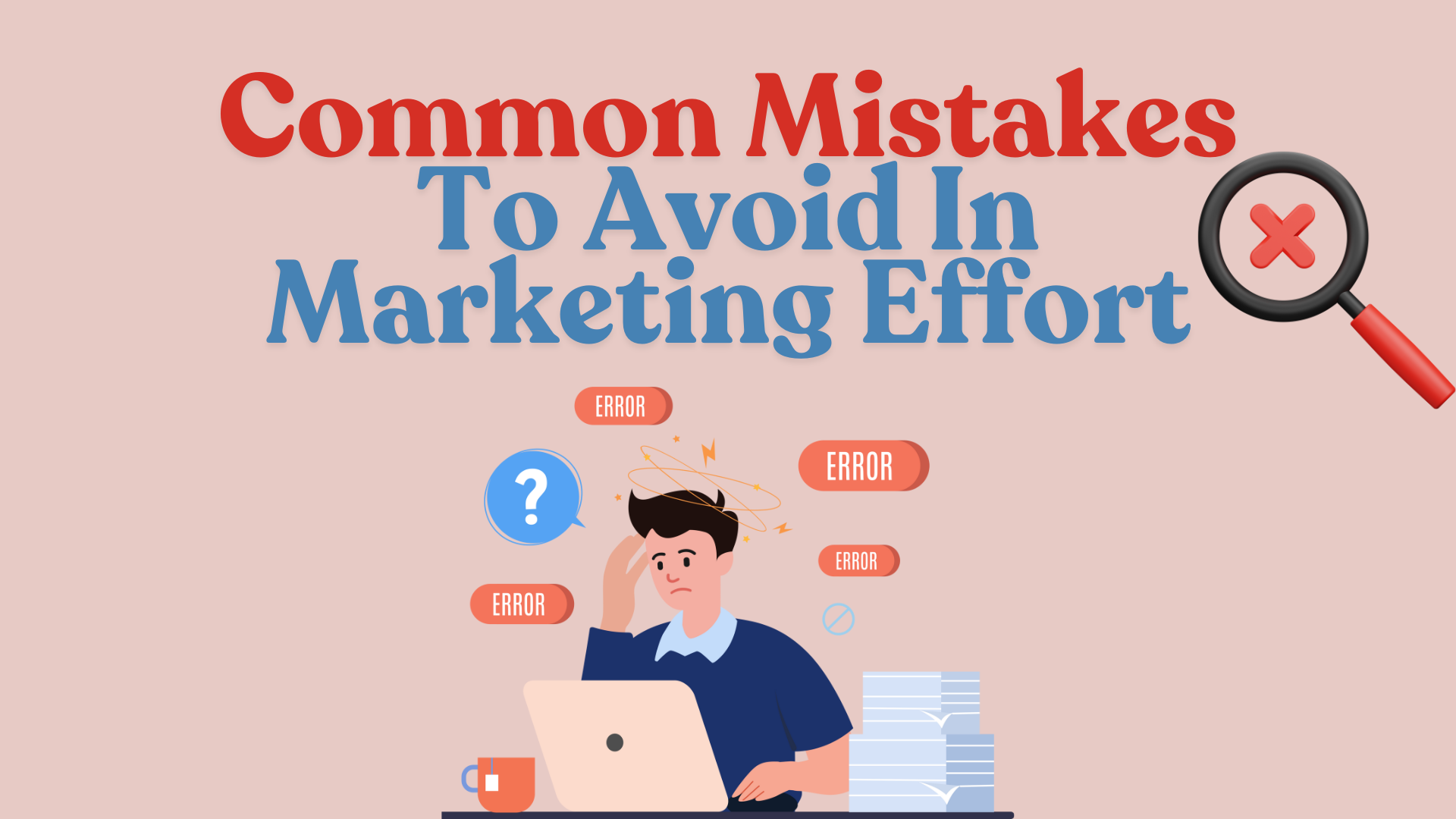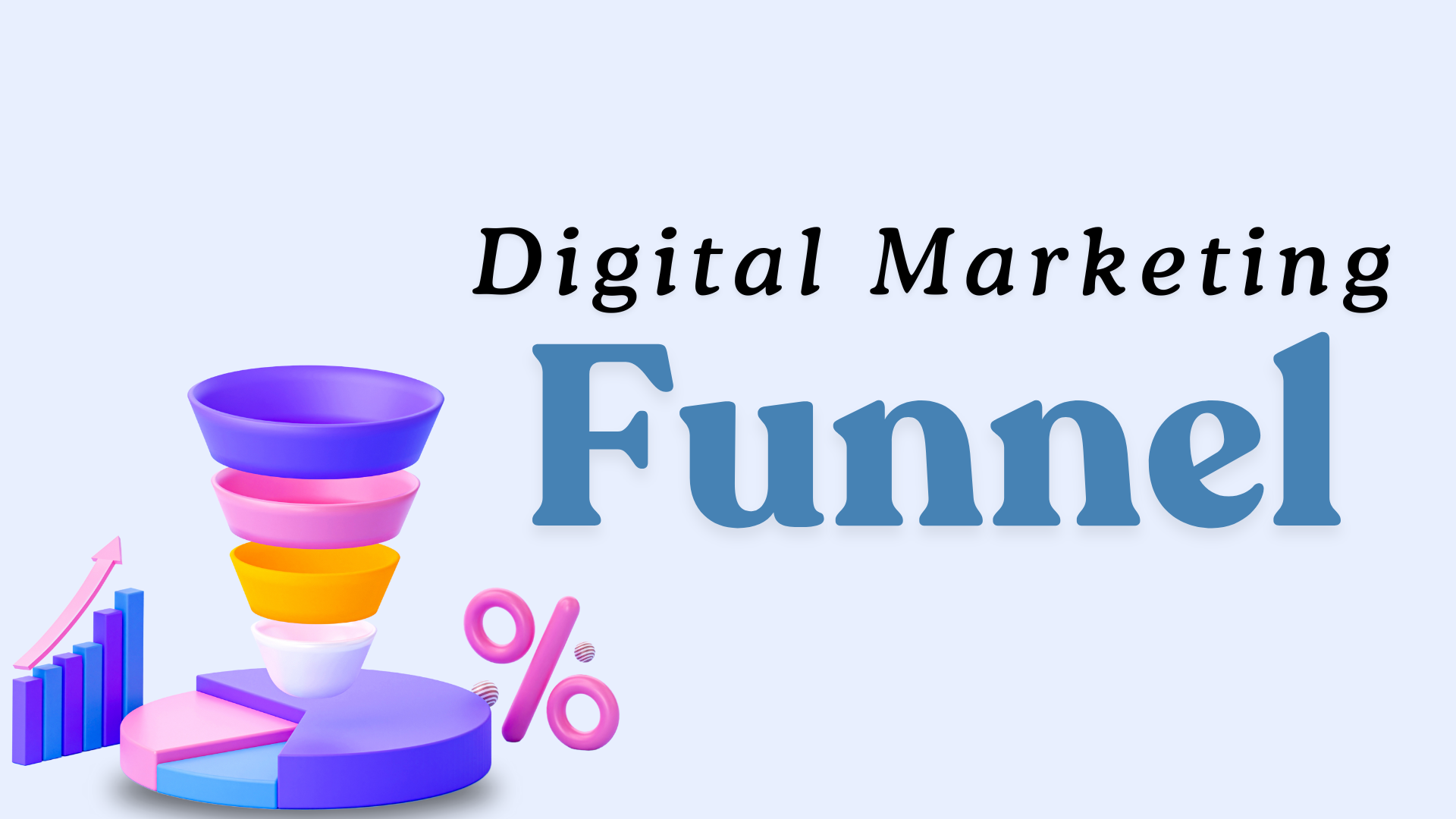CFO GROUP INTEGRATED SERVICES
Build, Optimize, Convert – Your Ultimate Digital Marketing Funnel Guide!
CMO Media Lab Pte Ltd • January 7, 2025
Understanding how to attract and retain customers can feel like navigating a maze in today's rapidly evolving digital landscape. The digital marketing funnel serves as a roadmap, guiding potential customers from the first spark of awareness to becoming loyal advocates for your brand. As businesses increasingly depend on online platforms, mastering this bottom-of-the-funnel is essential for success.
The digital marketing funnel is divided into several stages, each designed to address customers' various needs throughout their journey. Every step of an online marketing funnel strategy is crucial in maximizing conversions and ensuring lasting relationships, from generating awareness to nurturing leads and retaining loyal customers. Brands strategically approaching each stage can significantly enhance their online marketing funnel effectiveness.
This article will explore key strategies for mastering the digital marketing funnel, detailing its stages, benefits, and common pitfalls to avoid. By understanding and effectively implementing these strategies for the AIDA digital marketing funnel above, businesses can streamline their approach to digital marketing and ultimately drive better results.
Understanding the Digital Marketing Funnel
The digital marketing funnel is vital to digital marketing strategy for attracting and retaining customers. It consists of several stages, beginning with initial awareness and ultimately leading to customer loyalty. This funnel is crucial for guiding potential customers through their journey with your brand.
The marketing funnel is a guide for unlocking potential customers' journeys. It helps businesses transform initial awareness into brand loyalty. This funnel comprises four key stages and offers strategies for grabbing attention, building trust, sealing the deal, and ensuring customer retention. Understanding each stage allows businesses to make strategic, data-driven decisions.
Stages of the Digital Marketing Funnel
Attention Stage
The attention stage focuses on grabbing the audience’s focus, often through emotionally engaging, visually striking, or thought-provoking content. At this stage, potential customers may not even realize they have a problem or a need for your product or service. The goal is to create curiosity and intrigue, making them stop scrolling or take notice amidst the noise of competing messages. Tactics like viral social media posts, bold advertising hooks, or eye-catching influencer content best capture attention and pave the way for deeper customer interactions.
Content marketing, social media campaigns, and search engine optimization (SEO) are crucial. Paid advertising also creates valuable content that helps establish your brand. Crafting compelling content that resonates with prospective customers is essential for building brand awareness.
Awareness Stage
The goal of the awareness stage is to inform potential customers about your brand and the problem your product or service solves. This stage is about building recognition and connecting with your audience by presenting relevant, value-driven content.
Channels like blogs, SEO, display ads, and videos are key in helping your audience realize that your brand can address a problem or need. At this stage, marketing teams focus on education, not hard selling.
Discovery Stage
The discovery stage occurs as potential customers actively explore solutions to their problems or needs. They may research options, read reviews, or compare products/services. You aim to position your brand as the ideal solution by providing value-rich content like detailed product descriptions, comparison guides, case studies, or webinars. This stage is about nurturing leads, answering questions, and providing the information they need to make an informed choice. Retargeting campaigns and email newsletters can be powerful tools for keeping your brand in mind.
Consideration Stage
The consideration stage is when leads evaluate whether your product or service best fits them. They are likely comparing competitors, weighing costs, and analyzing features. Your role here is to overcome objections and build trust by offering testimonials, demos, free trials, or special promotions. This stage is about nurturing intent and guiding potential customers toward purchasing with persuasive and targeted content, such as FAQs, personalized emails, or retargeting ads emphasizing unique selling points.
In this stage, the focus is on demonstrating value and trustworthiness to encourage customers. Prospective customers are exploring options, so providing detailed product information and case studies is key. Comparison guides and customer testimonials also build the credibility of your brand advocates. You aim to position your brand as the best choice by showcasing what sets you apart.
Potential customers become paying customers during the consideration stage. This stage requires action-driven strategies, such as clear call-to-actions (CTAs) and personalized offers. Simplifying the purchasing process is crucial, and landing pages play a pivotal role. These tactics help boost conversion rates and keep target customers, key metrics for success.
Customer Stage
The customer stage begins after a lead has made a purchase. It focuses on delivering a seamless post-purchase experience to ensure satisfaction and foster loyalty to local businesses. At this stage, providing exceptional customer support, easy onboarding, and personalized follow-ups is crucial to maintaining a positive relationship. Building loyalty programs, offering upsell opportunities, and creating communities around your brand can help turn customers into repeat buyers and eventually advocates for your business.
To master this funnel, use tools like Google Analytics to track key metrics and make informed decisions. By understanding these stages of the buying journey, businesses can improve their marketing efforts, lower Customer Acquisition Costs, and enhance customer experience across various marketing channels for success.
Why Are Marketing Funnels Important For Business?
A digital marketing funnel is a powerful tool that guides potential customers through different stages, from initial awareness to purchase. This approach helps businesses refine their marketing strategies by using data to attract and nurture new and existing customers.
Here are some key benefits:
1. Informed Decisions
Marketing funnels enable businesses to track customer behavior and preferences through tools like Google Analytics, heatmaps, and CRM platforms. By analyzing this data, companies can pinpoint which stages of the funnel are most effective and where improvements are needed.
For instance, businesses can rework their content or offer more compelling incentives if the data reveals a high bounce rate during consideration. This data-driven approach ensures that marketing efforts are refined to target keywords to the right audience, improve conversion rates, and maximize return on investment.
2. Personalized Content
Understanding customer needs at each top of the funnel stage allows businesses to create highly relevant and engaging content. For example, in the awareness stage, educational content like blogs and videos introduces the brand. In the consideration stage, personalized recommendations or detailed product comparisons help guide potential customers toward a purchase.
Tailored content demonstrates that a business understands its audience’s pain points and aspirations, resulting in higher engagement, improved customer satisfaction, and increased conversion rates.
3. Cost Efficiency
Marketing funnels help businesses allocate resources effectively by focusing on high-impact activities and minimizing unnecessary expenditures. Metrics like Customer Acquisition Cost (CAC) provide insights into the cost of acquiring each new customer, allowing businesses to adjust their budgets for better results.
For example, if your social media channels and campaigns yield higher conversions than email marketing, more resources can be allocated to social media channels and ads. This streamlined approach reduces wasted spending and ensures the long-term sustainability of marketing campaigns.
4. Enhanced Loyalty
A well-structured funnel doesn’t stop at making a sale; it extends into building long-term customer relationships. Content marketing, such as helpful guides or tutorials, keeps customers engaged after their purchase. Loyalty programs and incentives for repeat buyers encourage ongoing interactions and repeat sales.
Social proof—such as customer testimonials, reviews, or case studies—also builds trust and reinforces the customer’s decision to stick with the brand. This loyalty drives repeat business and turns satisfied customers into brand advocates who refer others.
5. Strategic Focus
The marketing funnel emphasizes a customer-centric approach, ensuring marketing strategies align with the customer’s journey. This approach helps businesses craft more targeted and effective campaigns by focusing on the right audience at the right time.
For instance, using targeted social media ads for the awareness stage of the marketing process or leveraging email campaigns for consideration ensures resources are directed toward relevant channels. This strategic focus boosts campaign efficiency, provides better audience reach, and delivers more meaningful results for the business.
A well-designed funnel thus supports strategic marketing and helps achieve business goals efficiently.
Smart Funnels, Smarter Profits: Elevate Your Digital Marketing Game
The digital marketing sales funnel is a powerful tool for turning potential customers into loyal ones. This framework guides prospects through key funnel stages: initial awareness, consideration, conversion, and sometimes retention. The sales funnel also plays a pivotal role in digital marketing strategies by boosting leads, sales, and revenue.
Here’s how each stage fits into a cohesive strategy:
Awareness and Engagement
Leverage content marketing and social media campaigns to attract and inform potential customers. Create blog posts, videos, and engaging social media content to spark interest and introduce your customer's post-purchase brand. Use paid ads strategically on platforms like Google and Facebook to reach your target audience effectively.
Consideration of Valuable Content
During the consideration stage, focus on delivering high-value content that helps prospects evaluate their options. To showcase your expertise, publish product comparisons, case studies, and customer testimonials. Address potential objections by providing precise and transparent information backed by social proof to build trust.
Conversion Through Personalization
Refine your marketing messages to align with your audience’s needs and preferences. Tools like Google Analytics can monitor behavior and optimize personalized email campaigns for higher conversion rates. To encourage prospects to engage with users and take action, offer limited-time promotions, create customized email campaigns, and create clear CTAs.
Retaining Existing Customers
Once a customer converts, the journey doesn’t end. Retaining existing customers is crucial for business growth and fostering customer loyalty. A strong loyalty program can further increase brand awareness and enhance engagement. Offering rewards or discounts encourages repeat purchases and reinforces customer loyalty. Additionally, providing excellent customer service and support is essential. Quick responses and helpful solutions ensure customer satisfaction and retention. Retention strategies ensure repeat business and turn satisfied customers into advocates for your brand. Retargeting through ads can also help bring back potential customers who showed interest but didn’t commit.
Common Mistakes to Avoid in Marketing Efforts
Mastering the digital marketing funnel requires avoiding common mistakes. A key challenge is thinking customers move in a straight line from awareness to the conversion top of the funnel. Instead, potential customers often explore and revisit various stages. To address this, ensure your digital marketing and message resonate across all funnel stages.
Here’s a deeper dive into the critical mistakes businesses make and how to avoid them:
1. Assuming a Linear Customer Journey
One of the biggest misconceptions is that customers move seamlessly from awareness to the conversion funnel. In reality, potential customers explore, revisit, and even skip stages of the funnel. Craft marketing messages that resonate across all funnel stages to address this, ensuring flexibility and alignment with varying customer behaviors.
2. Neglecting Post-Conversion Activities
Many businesses focus solely on acquiring new customers and ignore retention strategies. However, loyal and satisfied customers are key to long-term growth. Retaining them requires robust customer support, engaging loyalty programs, and personalized communication. Neglecting post-conversion activities leads to higher Customer Acquisition Costs (CAC) and missed opportunities for repeat business.
3. Overemphasis on Top-of-the-Funnel (TOFU)
Focusing your efforts on creating awareness without nurturing leads through the funnel's middle (MOFU) and bottom (BOFU) limits conversions. Spread your strategies across all stages to address prospective customers’ unique needs. Content like educational blog posts, product comparisons, and personalized offers can guide them effectively through the middle and bottom of the funnel.
Checklist for Avoiding Common Mistakes
1. Ensure Your Marketing Covers All Funnel Stages
Design campaigns and content that engage customers throughout their journey, from awareness to loyalty.
2. Monitor Key Metrics with Google Analytics
Regularly track and analyze customer behavior, conversion rates, and other performance indicators to refine your strategies.
3. Leverage Social Proof
Regularly track and analyze customer behavior, conversion rates, and other performance indicators to refine your strategies.
A balanced and comprehensive strategy focusing on all funnel stages ensures a seamless customer experience. Businesses can achieve sustainable growth and a loyal customer base by addressing common mistakes and optimizing every step.
Master the Funnel, Master Your Success
Mastering the digital marketing funnel is no longer optional—it's necessary in today’s competitive landscape. By understanding the unique purpose of each stage, from sparking awareness to fostering loyalty, businesses can create targeted strategies that resonate with their audience. The funnel isn't just about guiding potential customers; it's about building meaningful connections and delivering value at every step of their journey.
When businesses avoid common pitfalls, leverage data-driven insights, and craft personalized experiences, the results are precise: higher conversions, stronger customer relationships, and sustainable growth. With the right approach, the digital marketing funnel becomes a powerful tool to turn clicks into loyal customers, ensuring long-term success for any brand in the digital age.
More Leads, More Sales, Less Guesswork – Let’s Perfect Your Funnel With Us!
Ready to Transform Your Marketing Funnel into a Conversion Machine? Our advanced digital strategies will attract the right target audience, amplify engagement, and maximize conversions—perfectly aligned with your business objectives. At CMO Media Lab, we design tailored strategies that guide your audience seamlessly through every funnel stage—attracting, engaging, and converting with precision. Let’s elevate your business and turn potential leads into loyal customers. Please explore our website today to discover how we can empower your brand to thrive in the competitive digital world using our marketing solutions. Click below to optimize your marketing funnel today!
From Traffic to Sales— Here's How We Optimize Funnels That Drive Real Revenue!
- Build Awareness & Attract Quality Leads — Get your brand noticed with targeted strategies that drive traffic and engagement. Leverage high-impact ads and compelling content to build awareness and attract the right audience to your funnel.
- Convert Leads into Paying Customers—Say goodbye to missed opportunities! Optimize your funnel to seamlessly guide prospects through the journey. With data-driven marketing, you can reduce drop-offs, cut acquisition costs by 25%, and boost conversions by 30%.
- Retain & scale for Long-Term Growth — Keep customers engaged beyond the first purchase. Implement retargeting, email sequences, and loyalty programs to maximize lifetime value and ensure a steady stream of repeat buyers and brand advocates.
Ready to OUTSMART, OUTPERFORM, and OUTRANK your competition with a winning marketing funnel?
Our expert strategies are designed to guide your audience seamlessly through every stage of the marketing funnel together—attracting, engaging, and converting with precision. Click the button below to claim your FREE CONSULTATION, and let our team of marketing funnel experts help you turn clicks into customers today!


